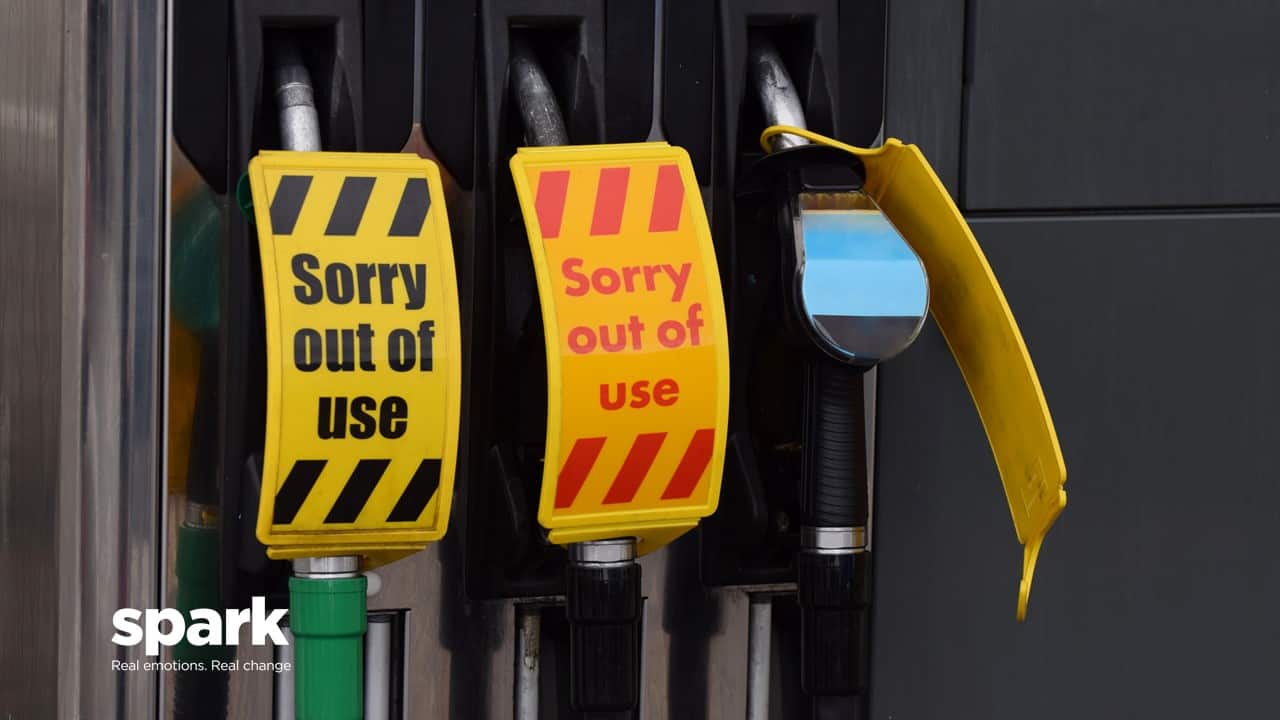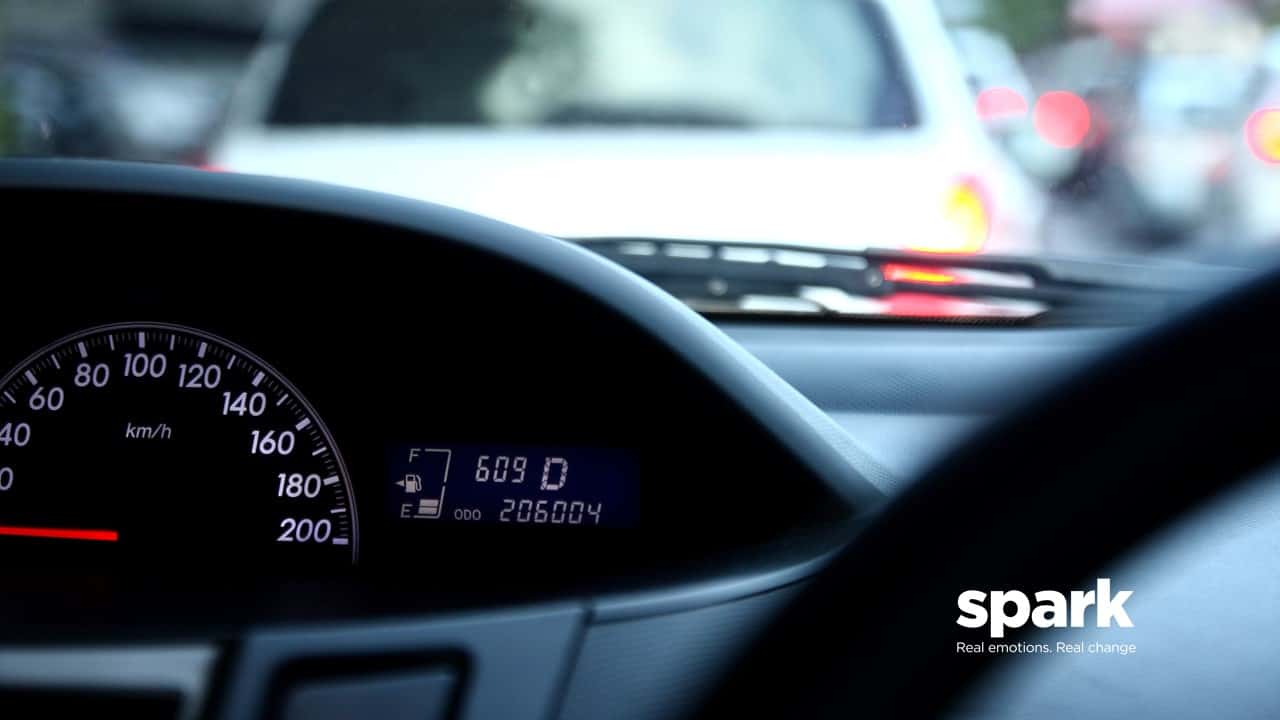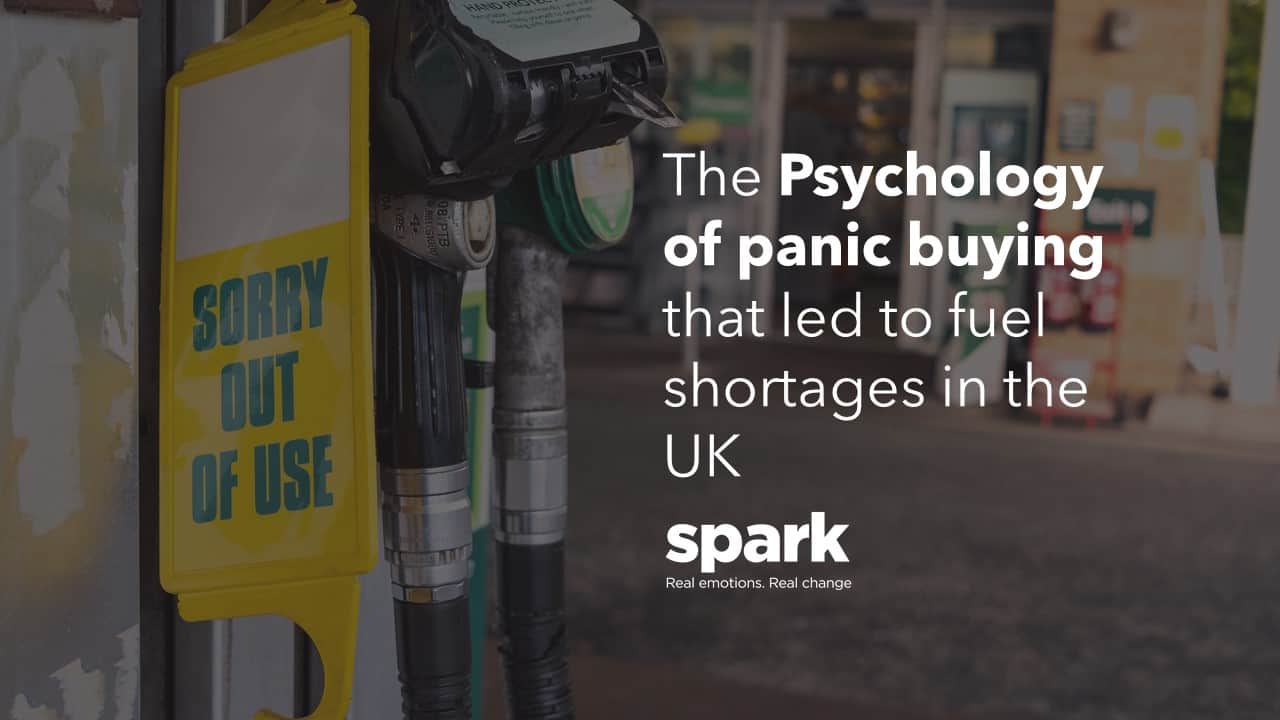Beginning at the end of September and continuing into the start of October 2021, it was not uncommon to see long queues outside every UK petrol station and there were even stories of altercations at the pump and motorists following tankers in their hunt for fuel.
Ironically, the UK did not have a fuel shortage, supply was normal in most places. However, many motorists were purchasing more fuel than needed or even when they didn’t need it, resulting in exceptionally high demand that exceeded supply. It was panic buying that led to a very real fuel crisis.

It started with reports that a lack of lorry drivers had led to a handful of forecourts running low on fuel. This created feelings of anxiety and uncertainty about the future e.g. will it get worse, how widespread will it be, and media sensationalism exacerbated this fear.
What causes panic buying
When motorists (or shoppers) are faced with a perceived lack of control, they adopt solution-orientated behaviours to elevate their anxiety, which in this instance, was to search for fuel. This led to queues at forecourts as taking action gave motorists an illusion of control and minimised the threat they felt.
Furthermore, the constant media coverage played into two human tendencies that resulted in panic buying snowballing across the UK. The ‘fear of missing out’ (e.g. will there be fuel left when I need it?) and social conformity (e.g. if everyone else is doing it, shouldn’t I?) resulted in more and more motorists searching for fuel and panic buying.

How can you help?
In this situation, calm messaging offering reassurance and solutions is extremely important. It can also be helpful for motorists (or shoppers) to understand the consequences of panic buying on others. For example, news of emergency services and medical professionals unable to access fuel offered a chance to reflect on their needs vs others. Once both happened, panic buying gradually stopped and fuel demand returned to normal.
How can we help?
At Spark Emotions, we use a psychology lens to truly understand human behaviour to provide actionable solutions that go to the heart of how people think and behave. We are experts in understanding emotions, which allows us to give practical solutions to help alleviate pain points or tap into the emotion people are feeling.
Join our mailing list to receive insights directly to your inbox on the form below.
Join our mailing list

Written by Sinita Govind, Associate Director at Spark Emotions
If you have any questions, feel free to reach out to Sinita via email sinita.govind@sparkemotions.com or connect with her on LinkedIn





